When Edmund Hillary first conquered Mt. Everest, Sherpa Tenzing Norgay was at his side. Indeed, for as long as Westerners have been climbing the Himalaya, Sherpas have been the unsung heroes in the background. In August 2008, when eleven climbers lost their lives on K2, the world’s most dangerous peak, two Sherpas survived. They had emerged from poverty and political turmoil to become two of the most skillful mountaineers on earth. Based on unprecedented access and interviews, Buried in the Sky reveals their astonishing story for the first time.
Peter Zuckerman and Amanda Padoan explore the intersecting lives of Chhiring Dorje Sherpa and Pasang Lama, following them from their villages high in the Himalaya to the slums of Kathmandu, across the glaciers of Pakistan to K2 Base Camp. When disaster strikes in the Death Zone, Chhiring finds Pasang stranded on an ice wall, without an axe, waiting to die. The rescue that follows has become the stuff of mountaineering legend.
At once a gripping, white-knuckled adventure and a rich exploration of Sherpa customs and culture, Buried in the Sky re-creates one of the most dramatic catastrophes in alpine history from a fascinating new perspective.
Peter Zuckerman and Amanda Padoan explore the intersecting lives of Chhiring Dorje Sherpa and Pasang Lama, following them from their villages high in the Himalaya to the slums of Kathmandu, across the glaciers of Pakistan to K2 Base Camp. When disaster strikes in the Death Zone, Chhiring finds Pasang stranded on an ice wall, without an axe, waiting to die. The rescue that follows has become the stuff of mountaineering legend.
At once a gripping, white-knuckled adventure and a rich exploration of Sherpa customs and culture, Buried in the Sky re-creates one of the most dramatic catastrophes in alpine history from a fascinating new perspective.
One of the American West’s bloodiest—and least-known—massacres is searingly re-created in this generation-spanning history of native-white intermarriage.
National Book Award–winning histories such as The Hemingses of Monticello and Slaves in the Family have raised our awareness about America’s intimately mixed black and white past. Award-winning western historian Andrew R. Graybill now sheds light on the overlooked interracial Native-white relationships critical in the development of the trans-Mississippi West in this multigenerational saga. Beginning in 1844 with the marriage of Montana fur trader Malcolm Clarke and his Piegan Blackfeet bride, Coth-co-co-na, Graybill traces the family from the mid-nineteenth century, when such mixed marriages proliferated, to the first half of the twentieth, when Clarke ’s children and grandchildren often encountered virulent prejudice. At the center of Graybill’s history is the virtually unexamined 1870 Marias Massacre, on a par with the more infamous slaughters at Sand Creek and Wounded Knee, an episode set in motion by the murder of Malcolm Clarke and in which Clarke ’s two sons rode with the Second U.S. Cavalry to kill their own blood relatives.
National Book Award–winning histories such as The Hemingses of Monticello and Slaves in the Family have raised our awareness about America’s intimately mixed black and white past. Award-winning western historian Andrew R. Graybill now sheds light on the overlooked interracial Native-white relationships critical in the development of the trans-Mississippi West in this multigenerational saga. Beginning in 1844 with the marriage of Montana fur trader Malcolm Clarke and his Piegan Blackfeet bride, Coth-co-co-na, Graybill traces the family from the mid-nineteenth century, when such mixed marriages proliferated, to the first half of the twentieth, when Clarke ’s children and grandchildren often encountered virulent prejudice. At the center of Graybill’s history is the virtually unexamined 1870 Marias Massacre, on a par with the more infamous slaughters at Sand Creek and Wounded Knee, an episode set in motion by the murder of Malcolm Clarke and in which Clarke ’s two sons rode with the Second U.S. Cavalry to kill their own blood relatives.
Fifty generations ago the cultural empire of the Celts stretched from the Black Sea to Ireland and the Highlands of Scotland. In six hundred years, the Celts had produced some of the finest artistic and scientific masterpieces of the ancient world. In 58 BC, Julius Caesar marched over the Alps, bringing slavery and genocide to western Europe. Within eight years the Celts of what is now France were utterly annihilated, and in another hundred years the Romans had overrun Britain. It is astonishing how little remains of this great civilization.
While planning a bicycling trip along the Heraklean Way, the ancient route from Portugal to the Alps, Graham Robb discovered a door to that forgotten world--a beautiful and precise pattern of towns and holy places based on astronomical and geometrical measurements: this was the three-dimensional "Middle Earth" of the Celts. As coordinates and coincidences revealed themselves across the continent, a map of the Celtic world emerged as a miraculously preserved archival document.
Robb--"one of the more unusual and appealing historians currently striding the planet" (New York Times)--here reveals the ancient secrets of the Celts, demonstrates the lasting influence of Druid science, and recharts the exploration of the world and the spread of Christianity. A pioneering history grounded in a real-life historical treasure hunt, The Discovery of Middle Earth offers nothing less than an entirely new understanding of the birth of modern Europe.
While planning a bicycling trip along the Heraklean Way, the ancient route from Portugal to the Alps, Graham Robb discovered a door to that forgotten world--a beautiful and precise pattern of towns and holy places based on astronomical and geometrical measurements: this was the three-dimensional "Middle Earth" of the Celts. As coordinates and coincidences revealed themselves across the continent, a map of the Celtic world emerged as a miraculously preserved archival document.
Robb--"one of the more unusual and appealing historians currently striding the planet" (New York Times)--here reveals the ancient secrets of the Celts, demonstrates the lasting influence of Druid science, and recharts the exploration of the world and the spread of Christianity. A pioneering history grounded in a real-life historical treasure hunt, The Discovery of Middle Earth offers nothing less than an entirely new understanding of the birth of modern Europe.
Tom Landry, the coach during professional football's most fabled era, transformed the gridiron from a no-holds-barred battlefield to the technical chess match it is today. With his trademark fedora and stoic facade, "God's Coach" was a man of faith and few words, for twenty-nine years guiding "America's Team" from laughingstock to well-oiled machine, with an unprecedented twenty consecutive winning seasons and two Super Bowl titles. Now, more than a decade after Landry's death, acclaimed sports biographer Mark Ribowsky finally takes a fresh look at this much-misunderstood legend, giving us a distinctly American biography that tells us as much about our country's fascination with football as it does about Landry himself.
While his coaching years are set against the backdrop of a nation roiling with racial and political turmoil--and the anything-goes partying constantly threatening the all-American mystique--The Last Cowboy begins amid the dusty roads of Mission, Texas, where Tom Landry's childhood played out like a homespun American fable. It then takes us to the war-torn skies over western Europe, where the straight-A student and high school football star piloted a B-17 through thirty harrowing, at times near-fatal, missions. And finally back to a booming Texas, where he continued his faithful march toward gridiron immortality.
In between, however, we learn that Landry was an infinitely more complex figure than his legions of fans and critics could have ever imagined. Indeed, for all his restrained emotions and old-world courtliness, he was a man of great reach and curiosity: an art and wine connoisseur, a world traveler, a collector of first-edition old-West literature. Drawing from dozens of exclusive interviews, Ribowsky reveals that Landry was anything but "cold," and it was actually his depth as a human that positioned him to become an avatar of change, first as the civil rights movement spilled onto the field and, later, as the game of football transformed into something unrecognizable to those who had come before him.
But Landry's virtues notwithstanding, he was hardly perfect and nor were his players. From the unending quarterback controversies between Roger Staubach and Craig Morton to the locker room battles with Duane Thomas and Thomas "Hollywood" Henderson to the heartbreaking loses suffered at the hands of Landry's only true rival, Vince Lombardi, The Last Cowboy becomes a fascinating portrait of a fiercely Christian man desperately trying to stay the course in a city whose flamboyance mirrored that of the team he built.
The result is a definitive biography that will frame its subject within a larger American panorama while also reintroducing us to a legend whose impact on the NFL, and the sport itself, is nothing short of immeasurable.
While his coaching years are set against the backdrop of a nation roiling with racial and political turmoil--and the anything-goes partying constantly threatening the all-American mystique--The Last Cowboy begins amid the dusty roads of Mission, Texas, where Tom Landry's childhood played out like a homespun American fable. It then takes us to the war-torn skies over western Europe, where the straight-A student and high school football star piloted a B-17 through thirty harrowing, at times near-fatal, missions. And finally back to a booming Texas, where he continued his faithful march toward gridiron immortality.
In between, however, we learn that Landry was an infinitely more complex figure than his legions of fans and critics could have ever imagined. Indeed, for all his restrained emotions and old-world courtliness, he was a man of great reach and curiosity: an art and wine connoisseur, a world traveler, a collector of first-edition old-West literature. Drawing from dozens of exclusive interviews, Ribowsky reveals that Landry was anything but "cold," and it was actually his depth as a human that positioned him to become an avatar of change, first as the civil rights movement spilled onto the field and, later, as the game of football transformed into something unrecognizable to those who had come before him.
But Landry's virtues notwithstanding, he was hardly perfect and nor were his players. From the unending quarterback controversies between Roger Staubach and Craig Morton to the locker room battles with Duane Thomas and Thomas "Hollywood" Henderson to the heartbreaking loses suffered at the hands of Landry's only true rival, Vince Lombardi, The Last Cowboy becomes a fascinating portrait of a fiercely Christian man desperately trying to stay the course in a city whose flamboyance mirrored that of the team he built.
The result is a definitive biography that will frame its subject within a larger American panorama while also reintroducing us to a legend whose impact on the NFL, and the sport itself, is nothing short of immeasurable.
Through memorable language and bawdy humor, Gurganus returns to his mythological Falls, North Carolina, home of Widow. This first work in a decade offers three novellas mirroring today’s face-lifted South, a zone revolutionized around freer sexuality, looser family ties, and superior telecommunications, yet it celebrates those locals who have chosen to stay local. In doing so, Local Souls uncovers certain old habits—adultery, incest, obsession—still very much alive in our New South, a "Winesburg, Ohio" with high-speed Internet.
Wells Tower says of Gurganus, "No living writer knows more about how humans matter to each other." Such ties of love produce hilarious, if wrenching, complications: "Fear Not" gives us a banker's daughter seeking the child she was forced to surrender when barely fifteen, only to find an adult rescuer she might have invented. In "Saints Have Mothers," a beloved high school valedictorian disappears during a trip to Africa, granting her ambitious mother a postponed fame that turns against her. And in a dramatic "Decoy," the doctor-patient friendship between two married men breaks toward desire just as a biblical flood shatters their neighborhood and rearranges their fates.
Gurganus finds fresh pathos in ancient tensions: between marriage and Eros, parenthood and personal fulfillment. He writes about erotic hunger and social embarrassment with Twain's knife-edged glee. By loving Falls, Gurganus dramatizes the passing of Hawthorne’s small-town nation into those Twitter-nourished lives we now expect and relish.
Four decades ago, John Cheever pronounced Allan Gurganus "the most technically gifted and morally responsive writer of his generation." Local Souls confirms Cheever’s prescient faith. It deepens the luster of Gurganus’s reputation for compassion and laughter. His black comedy leaves us with lasting affection for his characters and the aching aftermath of human consequences. Here is a universal work about a village.
Wells Tower says of Gurganus, "No living writer knows more about how humans matter to each other." Such ties of love produce hilarious, if wrenching, complications: "Fear Not" gives us a banker's daughter seeking the child she was forced to surrender when barely fifteen, only to find an adult rescuer she might have invented. In "Saints Have Mothers," a beloved high school valedictorian disappears during a trip to Africa, granting her ambitious mother a postponed fame that turns against her. And in a dramatic "Decoy," the doctor-patient friendship between two married men breaks toward desire just as a biblical flood shatters their neighborhood and rearranges their fates.
Gurganus finds fresh pathos in ancient tensions: between marriage and Eros, parenthood and personal fulfillment. He writes about erotic hunger and social embarrassment with Twain's knife-edged glee. By loving Falls, Gurganus dramatizes the passing of Hawthorne’s small-town nation into those Twitter-nourished lives we now expect and relish.
Four decades ago, John Cheever pronounced Allan Gurganus "the most technically gifted and morally responsive writer of his generation." Local Souls confirms Cheever’s prescient faith. It deepens the luster of Gurganus’s reputation for compassion and laughter. His black comedy leaves us with lasting affection for his characters and the aching aftermath of human consequences. Here is a universal work about a village.
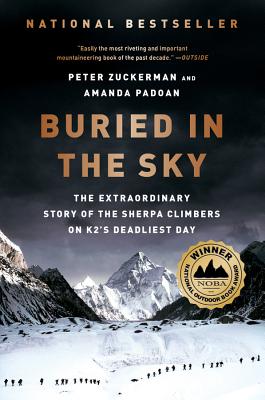
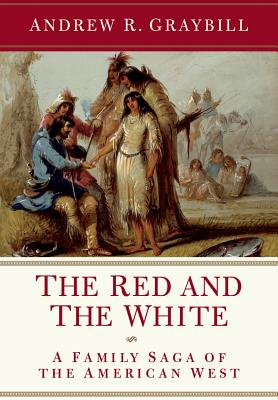
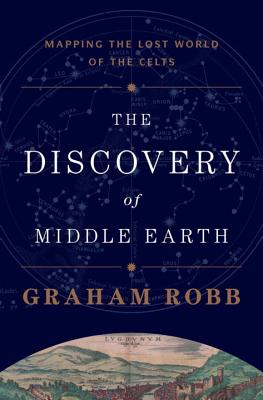
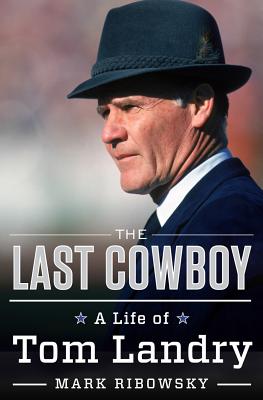
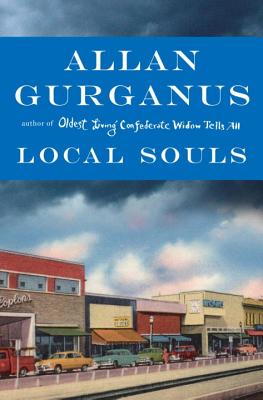
No comments:
Post a Comment